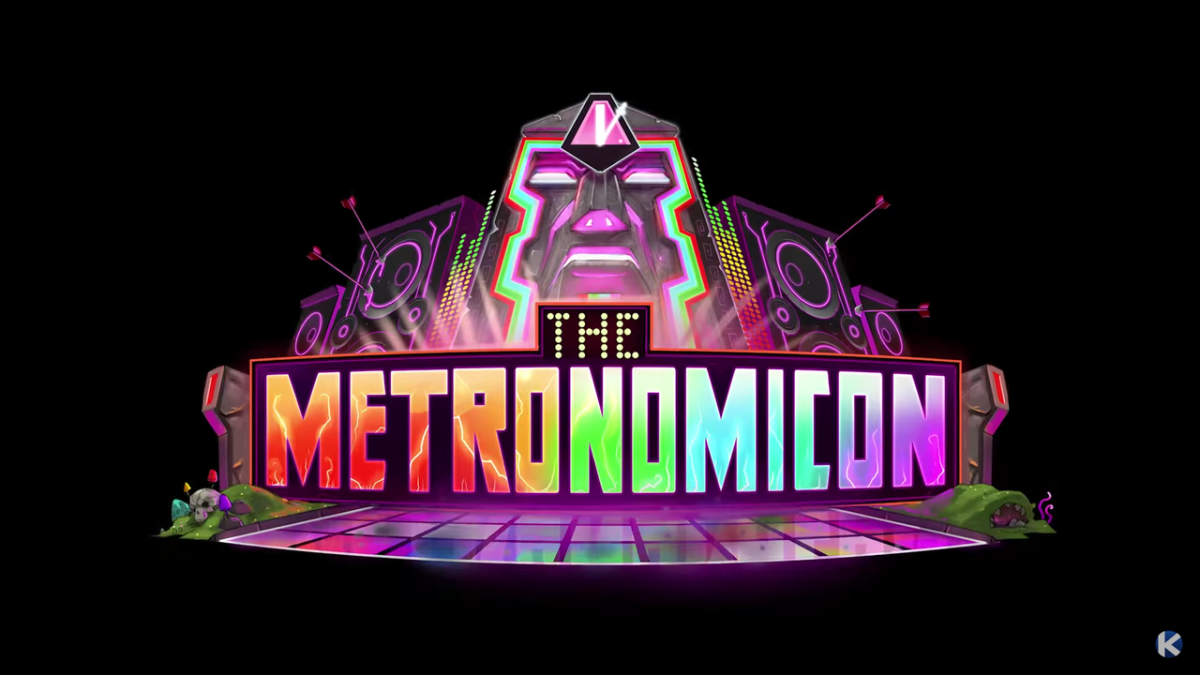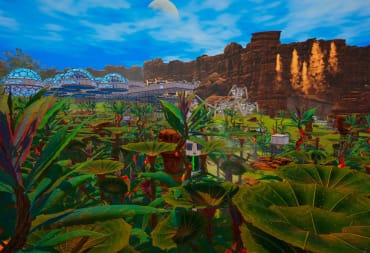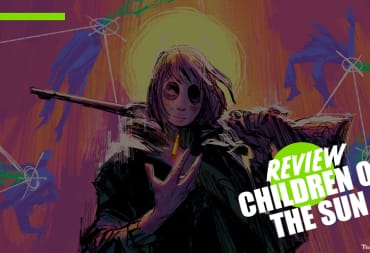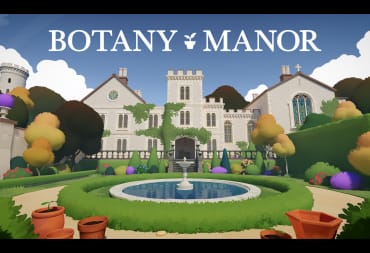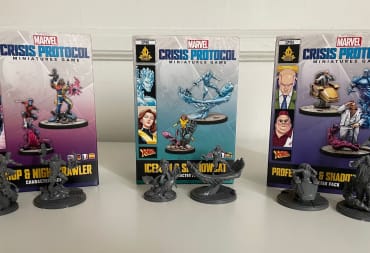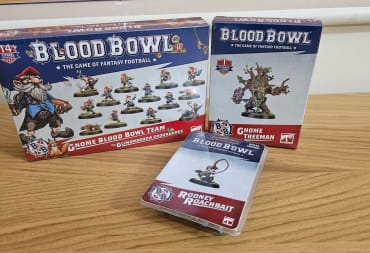Combining RPG and music game elements isn't the most original idea. Square Enix has put out two Theatherythm Final Fantasy games on the Nintendo 3DS that did it quite well. Looking on Steam, both Before the Echo and Crypt of the Necrodancer manage to fill this particular niche with style. Despite the competition, Puuba and Kasedo Games are the latest to test their skills on the dance floor with The Metronomicon. Is this game the new dancing queen, or does it trip and fall?
In a world where parties that attract monsters are springing up all over for an unknown reason, only one school is taking the fight to them. Studying from a tome known as the Metronomicon, a recent group of four graduates begins taking quests to discover what's causing these parties and how to stop them. Along the way they'll meet up with other people studying the parties, sneaking around and making trouble, or just being weird, and will have their ranks grow as they continue their quest. The Metronomicon's story is silly, which is exactly what I expected, but it's well told. Part of the reason is thanks to some particularly good voice acting, with characters carrying their personalities through their lines well. The game is also funny, jokes about the character's inability to keep quiet during long speeches made me chuckle, while an old character who goes out of his way to stay fit was entertaining. It's not amazing, but the plot is consistent with the game's tone and is good enough to keep me interested.
![]()
A music game is nothing without its soundtrack, and The Metronomicon delivers in spades. Containing a rather impressive 50 songs, I actually went into this one almost entirely blind. I was only aware of two artists on the tracklist: Jimmy Urine and Perturbator (and technically Machine Supremacy, but only through a friend). The Metronomicon mostly deals in faster-paced battle music, and this turns out to be a massive success. Songs like "Strut Peacock, by Crushcraze", "I Thought the Future Would be Cooler, by YACHT", "Zombie Run, by Shinji Hosoe", and "Miss Communication, by Mega Ran" were among my favorites, and that's just trying to contain myself to four. In fact, of the 50 songs, there were only two I honestly didn't care for. The aforementioned Machine Supremacy has a song called Republic of Gamers that is some strange "gamers are better than everyone else because reasons" song that contained such cringe-inducing lyrics that I was honestly convinced it was supposed to be an ironic YouTube video sort of thing. The only other song I had a problem with was "111, by Efe Tozan" not because it was bad but because it was so short that I'm pretty sure the title describes its length as well. Still, 48 out of 50 is more than enough for me to say that this is one killer soundtrack.
Each level is a single song long, with your party and the monsters dancing along to the beat. Arrows descend from the top of the screen in time with the beat and you have to hit them when they reach the bottom. Nothing particularly crazy, or even unique, but it's a good enough base. There are four tracks moving at all times, and each track is tied to one of your party members. Each party member can equip three active abilities into tiers that activate depending on how many notes you hit. An ability in the first tier is easier to activate, as it requires the least amount of notes hit to get to, but it also weakens the ability. On the other hand, a third tier ability is tougher to get to but is stronger than your usual skills. They can also get one passive ability which activates every time you hit a certain amount of total notes. Balancing out your abilities is an important part of The Metronomicon and how you set your skills can totally alter how you play the game.
![]()
You can't just throw whatever abilities you want at enemies all willy-nilly. Each enemy is classified as one of four magic types or one physical element. Each magical element takes 1.5x extra damage from an opposing element. For example, fire takes extra damage from water, while water takes extra damage from electricity. Using the same element as the opposition runs into a resistance, as it only deals half damage. Physical element works a little differently with all magical elements not having a bonus against it, but physical doing a 1.25x bonus against itself. Every single attack in the game is one of these five elements, so you always want to make sure you're doing as much damage as possible with each attack. Wasting your time with a higher tiered attack that won't do as much damage due to elemental bonuses won't get enemies killed fast enough.
You'll definitely want to speedily dispatch foes as well. The obvious reason for this is that enemies are always attacking you. Your party shares a single health bar, though each character has their own defensive stats and resistances. Enemies also spawn at a steady pace if you don't kill them, so your four on one can quickly end up a four on three, a much worse situation for you. Perhaps most importantly, however, is that each stage has a special elite enemy in it, one with a bigger health bar that does more damage. Kill that enemy before the song ends, and you can get some special rewards at the end of the level. It encourages you to play it smart, keep the damage flowing, and play up your advantages when you can.
![]()
Sometimes, all of the game's elements become a bit much to pay attention to. Keeping track of so much relevant information while also taking in the notes can feel impossible at times, especially on the harder difficulties. Some of this isn't helped by the overloaded UI, which seems to have tons of irrelevant information or artistic flourish floating around it. I couldn't find any easy way to tell how long my buffs or debuffs were good for, for example. By the end of the game, when I got to the point where I could manage to keep track of so much information at once, it became less of a challenge. It's just one of those things that probably could have been conveyed better.
After finishing a song, you'll occasionally unlock a side quest for that particular song. These optional missions see you repeating the song with certain conditions needing to be fulfilled, like dealing a certain amount of damage or killing a certain amount of enemies. Completing side quests doesn't earn you any experience, but it does earn you equipment that you can give your characters to boost their stats. Revisiting songs with extra challenges is a cool way to change things up as well, giving you something different outside of the main campaign.
![]()
When you finish stages, you're rewarded with the game's six different types of currency. The most important is Street Cred, which you can only get by killing the level's elite enemy or as a reward for completing side quests or arena challenges. You can use Street Cred to upgrade the school, which gives you access to new rooms and team abilities. Once you've got the school fully upgraded then you can spend Street Cred on ultimate equipment for each of the game's eight characters. The other five currencies are elemental crystals based on the four magic elements and a fifth "physical" crystal. You earn these seemingly at random, and these are used to buy songs for you to listen to outside of combat and to buy the game's cutscenes to rewatch. Why they couldn't just use Street Cred for this too, and instead hid it behind five random currencies, is beyond me. All it did was make me waste time hoping to get what I wanted.
After you finish the story you have some extra game modes you can play. You can replay any story level you want if you liked the song, on harder difficulties of course. More interesting is an arena where you can take on challenges with specific songs, somewhat similar to side quests. Here, you may be fighting bosses with seriously underpowered characters, or having your party full of healers and being asked to heal a certain amount of HP before the song ends, or having to deal with permanent debuffs. There's quite a few challenges available and a daily one that gives you something new to try every day. On the other hand, a free play mode doesn't really make much sense. You're only able to select who you want in your party with no way to customize their abilities. Instead, you're just stuck with pre-made versions of each character. When you can already replay any song in the story mode with characters you can fully customize, it just seems like a pointless addition.
![]()
I had high hopes going into The Metronomicon, and was pleasantly surprised to find it delivered on what I wanted. I always found myself attracted to music games mashed with other genres and here it's done exceptionally well. The Metronomicon will be the bar I compare future rhythm/RPG mash-ups to, and it deserves it. Some beats are worth dancing to, and this is one.
The Metronomicon was reviewed on a PC via Steam using a copy provided by the developer. It is also avialable DRM-Free on GOG (Affililate).
Review Summary
The Metronomicon has a few faults, but nothing that stops it from being my favorite rhythm RPG mash-up to date. With a killer soundtrack, some fun mechanics, and quite a lot of content, The Metronomicon is a beat worth getting down to.
(Review Policy)Pros
- Excellent Track List
- Solid RPG Mechanics
- Funny Story with Good Voice Acting
- Plenty to Do After Finishing The Story
Cons
- Managing Multiple Currencies
- A Bit Too Much Going On At Times
- Freeplay Mode is Pointless
Have a tip, or want to point out something we missed? Leave a Comment or e-mail us at tips@techraptor.net
